“Bottom line is that if you want to break into the comic book world, or any artistic venue for that matter, you have to start at the bottom and work your way up,”
– Commenter on Newsarama, ‘defending’ Bluewater by calling them “the bottom”
Bluewater Comics has an awful contract that creators sign because they’re desperate to “break into” the industry. Basically, they don’t pay you until a comic book is “profitable” and then it’s a royalty, with no advances. Which is kind of a shitty contract in the book world, but you still see it. The difference is that in this case Bluewater owns or licenses the Intellectual Property (IP) and what they’re doing is developing that IP for other-media on the backs of young freelancers, whom they never have to pay, and that moves from being a shitty contract to exploitation.
Here’s the secret about not getting paid for work: If you’re not being held to a professional standard (and the page rates in the comics industry are often criminally low, and easy-to-hit…) then you’re generally not turning in professional work. Does the poor bastard who turns out an ugly, unedited Ronald Reagan bio for Bluewater think that they’ve got “a portfolio piece”? Do they think they’re “professional” now? No, fuck no. Any self-respecting editor at any company knows that Bluewater is churning out books with very little quality control, that a “portfolio piece” from them counts for very little unless the freelancer was exceptionally talented to begin with. Talented artists: Build your portfolios for and by yourself, and not, say, by providing free artwork to companies who could pay you, but don’t want to. It’s the quality of what you produce that will decide whether you get hired or fired. The “even if we don’t pay them it’s still a portfolio piece” argument is a myth, flat-out, myth, because if you’re putting together a portfolio you put your strongest work in.
(Admittedly, it’s probably a better deal for writers, because it’s harder to ‘show’ writing samples than art samples, but I have yet to read any of their bio comics that are any good, and even if someone wrote a stunning biography of Oprah Winfrey, I have a hard time believing an editor is going to look at that and go “Shit, this person writes great trashy celeb cash-in biographies, I definitely want to see what they can do with a completely different style of writing.” Like, it could happen, but colour me unsurprised that it hasn’t yet.)
There are a number of companies that will pay freelancers to do comics, not promise to pay them if certain conditions are met, and leaving behind a long trail of dissatisfied creators claiming non-payment. My advice to aspiring talent is to find them, and realize that starting at the bottom doesn’t necessarily mean the gutter.
– Chris


Sounds a lot like standard operating procedure of the music industry, actually.
“I have a hard time believing an editor is going to look at that and go “Shit, this person writes great trashy celeb cash-in biographies, I definitely want to see what they can do with a completely different style of writing.” Like, it could happen, but colour me unsurprised that it hasn’t yet.”
Well, Neil Gaiman’s first published work was Duran Duran quickie, and his second was about Douglas Adams and the HITCHHIKER’S GUIDE.
But your general point is correct.
-B
>> Well, Neil Gaiman’s first published work was Duran Duran quickie, and his second was about Douglas Adams and the HITCHHIKER’S GUIDE.>>
Not true on either count, actually. Neil’s first published book was the Duran Duran book, but it wasn’t his first published work — wasn’t he doing fantasy reviews and pop-music interviews before that? His first published fiction came out the same year, as well.
His second book was GHASTLY BEYOND BELIEF, not DON’T PANIC. And by then he was selling comics stories too, I think.
And it’s not as if the Duran Duran book led editors to think he could write fiction — the fiction led to that. The Duran Duran book, though, is a perfectly viable early credit for someone pursuing music journalism, which he was at the time.
But his fiction career came from writing and selling fiction, and his comics career began with selling short stuff to 2000 AD. He broke in at beginner levels in each area.
At least they got published. They knew what they were signing, no one held a gun to their head. You sound jaded I take it you have never been published.
Ouch, you got me, douche!
I absolutely agree. I wrote a couple of articles about Darren Davis back in the Fall, and have since been approached by a grand total of 23 creators who all claim (at the very least) non-payment.
http://comicnews.info/?p=9014
You know who else has a nasty contract if you ever get to see it. Arcana. Basically, if you have a property, they make it so they become the sole owner, AND they have the option to remove any of the creative team at any time, and change anything in the material at any time. Besides the fact it gets exploited into other media and they are the sole owner of those exploits.
Plenty of companies do back end deals, but I always thought it was when the writer/artist is the owner, which makes sense.
This whole thing baffles me. Is there no fair practices act for something like this?
Also, I don’t know if they still do, but Oni Press had a pretty sketchy agreement. For a graphic Novel they’d give the creator $3000 flat and that’s it.
Andy- That’s not entirely true about Oni’s deal, there was a considerably more complex assignation of rights, and unlike Bluewater Oni pays that in advance, not on the back end. I think you’re talking a little more smack than you think you are.
Is Bluewater related to ReVisionary Press aka Revolutionary Comics?
@4Q2-
Late last year BlueWater acquired the rights to publish all materials from Revolutionary Comics. As many of Todd Loren’s books were pending litigation when they went under, I have wondered how much of a can of beans Davis opened up with that deal.
Chris- I suppose it’s possible that I was ‘talking more smack’ than I thought and in no way was I attempting to say Oni was just as bad as Bluewater. Oni is a pretty well known company that has put out plenty of books, I don’t think they would have been around for so long if they were totally sketchy.
But I do know someone who’s book was published through Oni in 2005 and they received $3000 up front (as you stated) for 136 pages. He had no ownership rights and made nothing after that initial payment, even though the book sold very well. In the end that’s a year’s worth of work for a very small sum.
It did get his name out there, but he said next time he would rather make a back end deal and be the owner through a company like Image.
funny, I already had this up on a different tab… http://jhische.com/workforfree.html